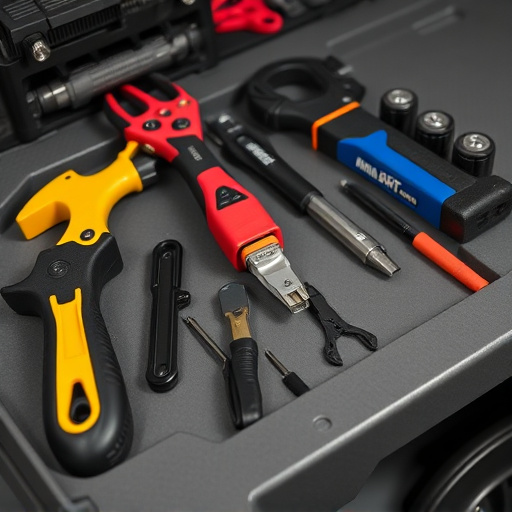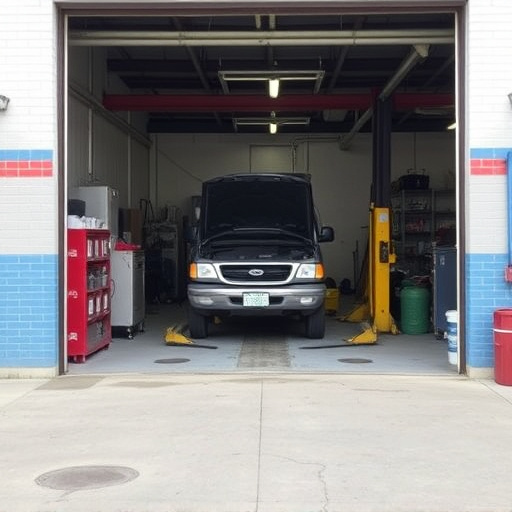Miscommunication in insurance company negotiations can lead to delays, increased costs, and strained relationships, especially in complex cases like car bodywork repairs. Clear communication is vital for building trust, understanding coverage, deductibles, and timelines, and fostering cooperation. Active listening, plain language, and avoiding jargon are key to successful negotiations, ensuring all parties understand their rights and responsibilities.
Clear communication is the cornerstone of successful insurance company negotiations. Misunderstandings can lead to costly miscalculations, damaged relationships, and even legal disputes. This article explores the profound impact of miscommunication in negotiations, highlighting why transparent dialogue is crucial. We delve into strategies that foster trust and ensure all parties grasp their rights and responsibilities, ultimately streamlining the process for both insurance providers and clients.
- Understanding the Impact of Miscommunication in Negotiations
- Building Trust Through Transparent Insurance Company Dialogue
- Strategies to Ensure Every Party Understands Their Rights and Responsibilities
Understanding the Impact of Miscommunication in Negotiations

Miscommunication during insurance company negotiations can have profound implications. In a situation where both parties interpret information differently, it leads to misunderstandings and potential disputes. This is especially true in complex discussions involving claims for car bodywork repairs or fleet repair services. A simple misstep or unclear statement from either side might result in delayed settlements, increased costs, and even strained relationships.
For instance, a client seeking compensation for their damaged vehicle at a car body shop might convey their expectations clearly. However, if the insurance adjuster doesn’t understand or interprets the requirements incorrectly, it can lead to disagreements over what constitutes ‘reasonable’ repair costs. Such miscommunications not only waste time but also add unnecessary stress to an already delicate process, emphasizing why clear communication is the cornerstone of successful negotiations in the insurance industry.
Building Trust Through Transparent Insurance Company Dialogue

In insurance company negotiations, transparent dialogue acts as a cornerstone for building trust with clients and stakeholders alike. When an insurance provider engages in open communication, they demonstrate integrity and a commitment to resolving claims fairly. This is particularly crucial when dealing with clients who have experienced automotive accidents, which often involve complex processes like collision repair shop estimates and coordination of auto body work.
Clear communication ensures that every party understands the scope of coverage, potential deductibles, and expected timelines for repairs. For instance, an insurance representative discussing a claim with a client can provide detailed explanations about how auto collision centers process claims, what types of damages are covered, and how estimates for repair services are determined. Such transparency fosters trust and cooperation, enabling all parties to navigate the negotiation process smoothly and efficiently.
Strategies to Ensure Every Party Understands Their Rights and Responsibilities

During insurance company negotiations, clear communication is paramount to ensuring all parties understand their rights and responsibilities. Active listening is a powerful tool—it involves paying undivided attention to the other side’s arguments and concerns, asking clarifying questions, and summarizing what you’ve heard to confirm understanding. This not only demonstrates respect but also prevents misunderstandings that could stall negotiations or lead to unfavorable outcomes.
Additionally, using plain language and avoiding jargon is crucial when dealing with insurance companies. Many terms related to coverage, deductibles, and claims processes can be confusing for non-experts. A good negotiator breaks down complex concepts into digestible parts, ensuring everyone involved—from the policyholder to the adjuster—is on the same page. This approach also fosters a collaborative environment, encouraging open dialogue and the exploration of mutually beneficial solutions, especially when discussing essential services like fleet repair services, collision repair, or auto glass repair during claim settlements.
Clear communication is not just a recommendation—it’s a cornerstone for successful insurance company negotiations. By understanding the impact of miscommunication, fostering transparent dialogue, and employing strategies that ensure mutual comprehension, parties can navigate complex discussions with confidence. These practices build trust, promote fairness, and ultimately lead to agreements that benefit all involved in the insurance negotiation process.














